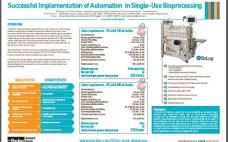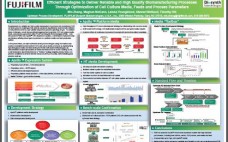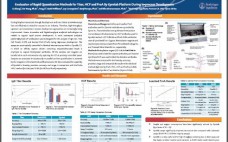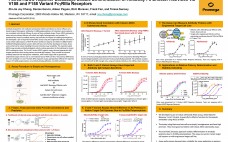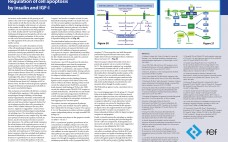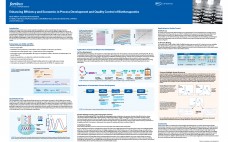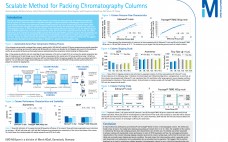As biopharmaceutical developers embrace single-use technologies to reduce risk, improve process speed, efficiency and flexibility, they have found few options in downstream unit operations. With the introduction of Natrix hydrogel technology, developers now find a chromatographic tool that provides the binding capacity of the best modern resins, but with ten times higher flow rates. This study illustrates the NatriFlo HD-Q anion exchange adsorber which provides high productivity polishing for monoclonal antibody for GMP manufacturing, including under high conductivity conditions. This…
Year of Publication
Successful Implementation of Automation in Single-Use Bioprocessing
Single-use bioprocessing is now common for the production of biopharmaceuticals. Existing and future biopharmaceuticals are extremely complex molecules that display structural heterogeneity. This heterogeneity must be carefully controlled in order to deliver consistently safe and efficacious product to patients. The FDA’s Guidance for Industry on Process Validation states that the manufacturer should understand the sources of variation be able to detect variation and understand the impact of variation on the process and ultimately the product. This presentation will review sources…
High Throughput Development of Non-Protein A Monoclonal Antibody Purification Process using Mini-Columns and Bio-Layer Interferometry
High throughput (HT) sorbent screening is widely used for developing purification process saving time and sample volume. This study describes the development of a non-protein A purification process for a monoclonal antibody (MAb) expressed in a CHO cell supernatant. For the capture step, 54 process conditions were screened in three days using 200 µL mini-columns packed with five different sorbents. Capacity and yield were evaluated using Bio-Layer Interferometry (BLI) with protein A biosensors and MAb purity, using SEC-HPLC. A 340-fold scale-up of…
Efficient Strategies to Deliver Reliable and High Quality Biomanufacturing Processes Through Optimization of Cell Culture Media, Feeds, and Process Parameters
Development of a reliable and high quality biomanufacturing process for recombinant CHO cell lines presents challenges from diverse nutritional requirements observed with different clonally derived cell lines, and variable response to process operating ranges. To address these challenges, we will discuss efficient approaches to optimize CHO cell culture media, feeds, and process parameters within FUJIFILM Diosynth Biotechnologies (FDB). Also discussed is FDB’s new ApolloTM CHO expression system, a cornerstone of process scale-up efficiency offering robust gene expression in a platform…
Evaluation of Rapid Quantitation Methods for Titer, HCP and ProA By Gyrolab Platform During In-Process Development
Getting biopharmaceuticals through development and into clinical proof-of-concept fast and efficiently is critical for success in our industry. Therefore, high-throughput upstream and downstream process development approaches are increasingly being implemented. Hence, innovative and high-throughput analytical technologies are needed to support rapid process development. A novel automated analytical platform-Gyrolab xP workstation was investigated for the analysis of IgG titer, Host Cell Protein (HCP) and leached ProA during in-process development. The assays are automated within a Gyrolab compact disc (CD) containing affinity-capture…
Paired ADCC Reporter Bioassays Enable Differentiation of Antibody Fc Effector Activities via V158 and F158 Variant FcyRIIIa Receptors
Antibody-dependent cell-mediated cytotoxicity (ADCC) contributes to clinical efficacy of a broad range of therapeutic antibodies. FcγRIIIa polymorphism of individual cancer patients are correlated with clinical efficacy of some of these antibody drugs. Classic ADCC cytotoxicity assays rely on primary effector cells, which are highly heterogeneous and variable. To quantitatively measure antibody activity and evaluate the impact of FcγRIIIa polymorphism, we developed a pair of reporter-based ADCC assays using two engineered effector cell lines in Jurkat that stably express an NFAT-RE driven…
Regulation of cell apoptosis by insulin and IGF-I
An increase in the number of cells growing in cell culture is the result of two opposing effects: an increase in the number of cells that traverse the cell cycle and divide into two daughter cells (mitosis), or a decrease in the number of cells that die according to different modalities, the most prominent one being apoptosis (1), or both. Insulin and IGF-I are both capable of facilitating cell progression through the cell cycle, and of inhibiting apoptotic mechanisms. In…
Continuous Bioprocessing: A CMO’s Perspective
The maturation of many process industries is marked by transition from batch to continuous processing. Often this move to con-tinuous processing determines the winners in the industry. Will the bioprocess industry go the same way? The analogy is often drawn to the chemical industry where continuous processing is widely applied. Although available for many decades continuous bioprocessing is not yet a mainstay of the industry. Currently there is a ground swell of feeling within the bioprocess industry that the time…
Enhancing Efficiency and Economics in Process Development and Quality Control of Biotherapeutics
Analytical techniques that measure protein quantity and quality are used in nearly all stages of research, process development, quality control and manufacturing of biotherapeutics. UV spectroscopy, ELISA and HPLC have been in use for decades for protein quantitation in physiological and process samples, and continue to be the workhorses despite their many limitations. Biopharmaceutical companies have enthusiastically adopted Pall ForteBio’s Octet® systems due to their high throughput capabilities, decreased sample preparation requirements, and low cost of operations. The Octet systems…
Scalable Method for Packing Chromatography Columns
Currently the bio-pharmaceutical industry is heading towards cost cutting, time saving and single use manufacturing approach. This has opened up a whole new market for disposable technologies. Pre-packed disposable chromatography columns are a best fit for preclinical and clinical stage Monoclonal Antibody (mAb) production and vaccine manufacturing processes which require quick turnaround times and aggressive validation respectively. This work describes development of pre-packed and ready to use chromatography columns to meet this need in the industry. A robust packing method…


